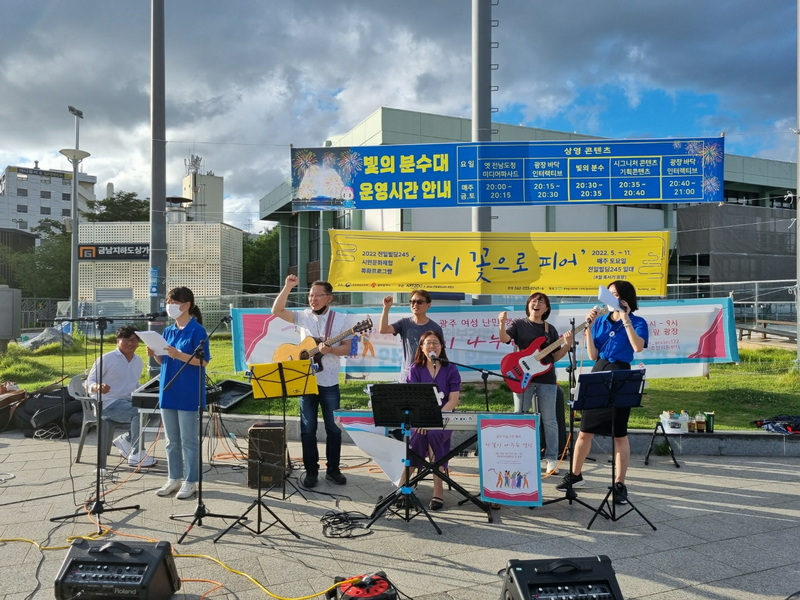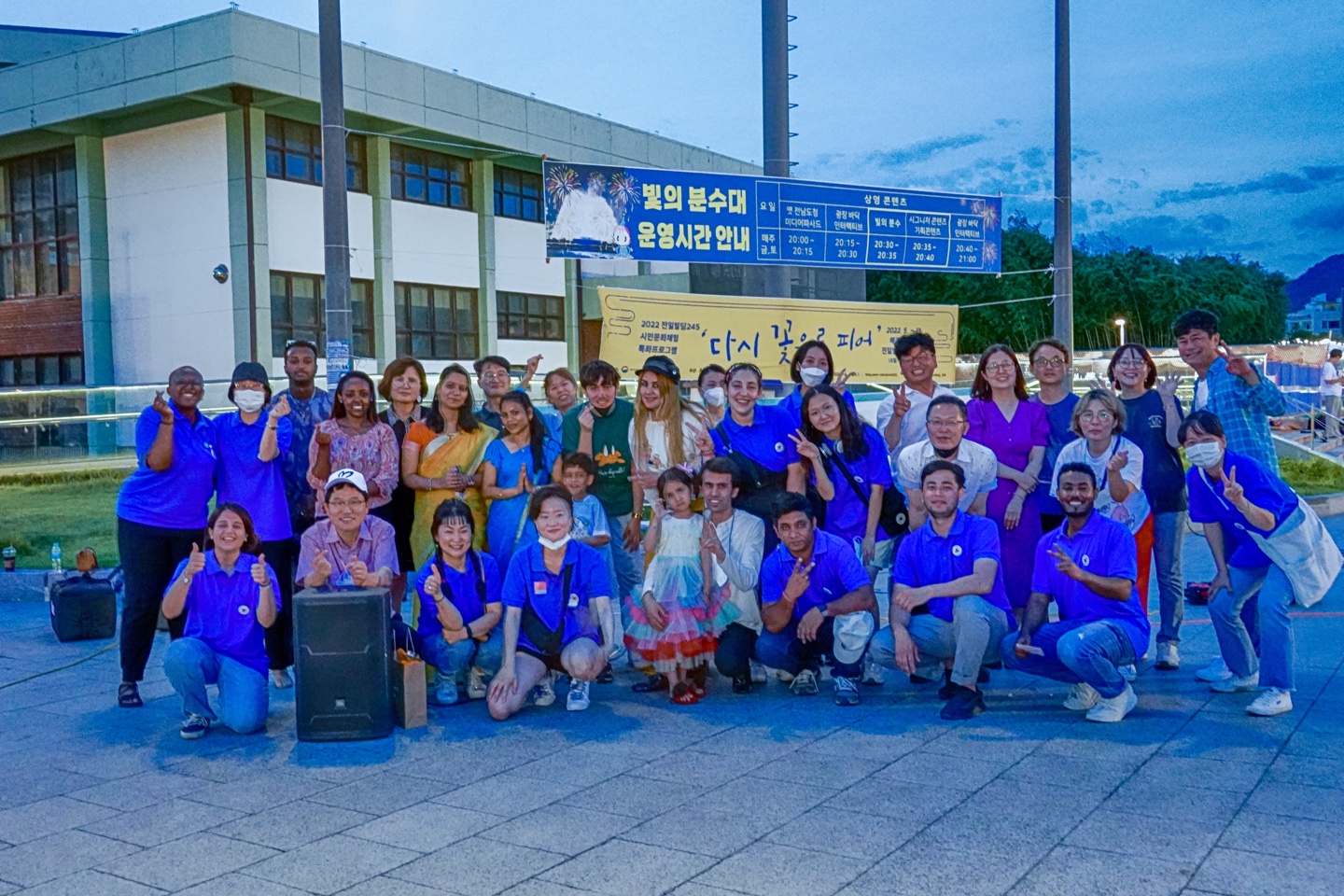Empower, Seek, Adapt: “Rise Together” at Gwangju’s Refugee Women Bazaar
By Yousra Feriel Drioua
On a scorching Sunday afternoon in the historical city of Gwangju, a new chapter was written. This might come as a stretch if you have experienced living in South Korea, but hear me out. Last June 26, Gwangju attested to a moment that could potentially be the birthplace of or stepping stone to a multiracial society in Korea – within sensible reason, of course. That is, given adequate time, conditions, and structure.
On the historical grounds of the May 18th square near the Asia Culture Center, the first Refugee Women Bazaar in Gwangju took place. Let me be clear and state that there is a distinct difference between “refugees” and “immigrants.” These women sought refuge in South Korea due to multiple factors ranging from war and political oppression to state-enforced imprisonment. What must be acknowledged is that they ran away from threats. No matter the variables of their individual circumstances, they shared one thought in heart: to seeking a better life.
Now, before we unconsciously take pity on these ladies, this unprecedented event was not aiming for pity in any way, shape, or form. It was, as a matter of fact, a means to do the contrary. That is, to celebrate these women and recognize the strength and bravery it took to make the decision of leaving everything they have ever known behind and dive into whatever life threw their way. It aimed to honor their persistence in adapting to a foreign land, language, culture, and society. Because, truthfully, what other choice did they have left except to survive? But mostly, this advent was brought to life so as to openly celebrate these women’s passions, which ranged from cooking, no matter how too befitting with socially enforced gender roles that sounds, jewelry making, and drawing to launching small businesses.
Next, before we jump further, let us introduce the brain and heart behind such a front: Fatima Al-Khadire. A passionate Jordanian human rights lawyer specializing in Refugee Law, she is a recent Chonnam National University graduate with an MA in NGO Studies. Prior to that, she won the Global NGO Master’s Program Scholarship (GNMP) offered by the May 18th Institute, which guided her to South Korea in 2019. Her master’s degree thesis focused on Arab women refugees in South Korea, a topic that has also yet to be explored often in this country, which made her research simultaneously more difficult but authentic. As an Arab woman myself, I was intrigued to hear the stories she had to share after the meetings and surveys she did.

Nonetheless, Miss Al-Khadire is currently most known as the proud founder of the Rise Together project. Rise Together is the first NGO of its kind in South Korea, as it is founded by a foreigner for the most part. It aims not only to be a voice for refugees but to be the bridge between said refugees and Korean society in hopes of ending dated stigmas and prejudice while creating positive change passionately and patiently.
Getting back on topic, there were several stars of the show that day besides the refugee women. While preparing for this event, Gwangju’s historic soul was displayed through the help of the May 18th Foundation and the Immigration Support Center, not to mention the volunteers, who themselves varied in ethnicity, origin, age group, and career field. The volunteers, as much as the refugee women in question, all share a passion for a better tomorrow while taking part in the movement in the present day.
The agenda was kept clean and simple so as not to startle the passersby but get them intrigued instead. There was a classic opening in both English and Korean as per custom, with musical performances and multiple booths. The main focus was the booths, which were dedicated to (1) Russia with handmade jewelry, (2) Iraq with art, (3) Afghanistan with food and culture, (4) Ethiopia and India with food, and (5) Egypt with a small handmade jewelry business. In addition to the general information booth, participants could get stickers to collect stamps from each booth they visited to either get free popcorn or a henna tattoo from the last booth. As stated by Fatima and the volunteers, they felt it was much more of a success than anticipated. The people who visited to get stamps were of different age groups and sexes. They also ranged from mostly Koreans to a few foreigners, which was delightful to see.
Last but not least, this is not the last we are going to see of Rise Together. The idea is fresh, serves a purpose, and is full of determination. Alongside the warmhearted visionary, Fatima, the passionate volunteers and everyone who had a hand in making the Refugee Women Bazaar a possibility surely still have more to bring to the table, especially in South Korea. I will end this piece with a line I am trying to adapt into my life at the moment. That line is: If you seek change, you must be a part of it.
P.S.: Do not forget to hit the follow button on Rise Together’s Instagram page for all future updates and news! @risetogether_project22
The Author
Yousra Feriel Drioua is a KGSP 21 scholar from Algeria, and previously a CNU Korean language trainee and currently a mass communication and journalism graduate school student at Kangwon National University. She seeks to learn and gain various experiences all around. She loves coffee, driving, deep conversations with friends and writing. Instagram @myyilgi




